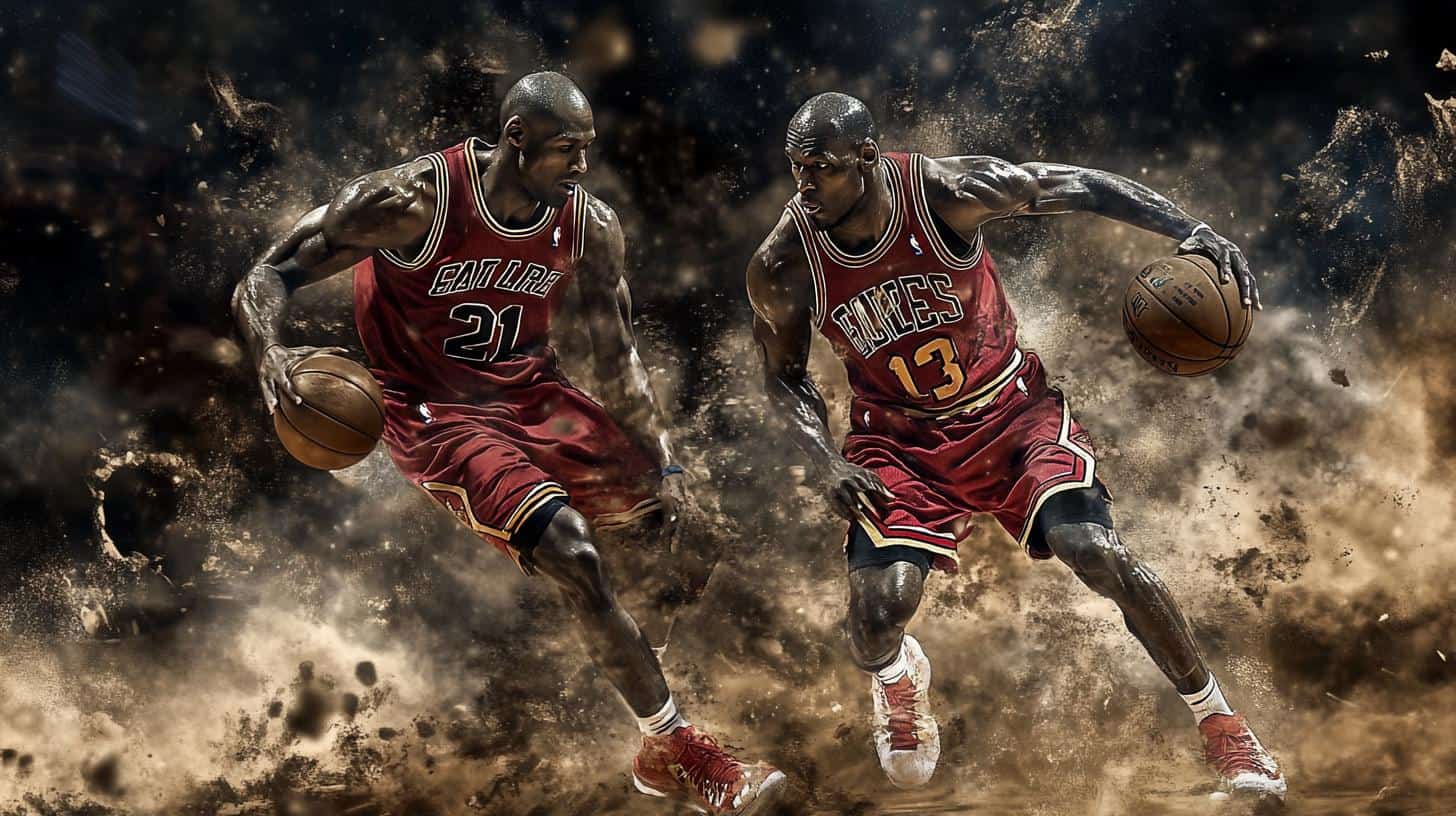The debate over who holds the title of the greatest basketball player of all time is as heated as it is perennial. While many names, including LeBron James, Kobe Bryant, and Kareem Abdul-Jabbar, repeatedly enter the conversation, Michael Jordan remains the benchmark against which all others are measured.
Playing the majority of his career with the Chicago Bulls, Michael Jordan amassed a stunning array of achievements. He is a six-time NBA champion and was named Finals MVP in each of those triumphs. Jordan’s influence extended beyond these titles, as he earned five regular season MVP awards and captured the NBA scoring title a record ten times. His career average of 30.1 points per game still stands as the highest in NBA history, underscoring his unparalleled scoring ability.
While Jordan’s statistics are staggering, his impact transcends mere numbers. Known for his competitive drive and clutch performances, his famous “Flu Game” during the 1997 NBA Finals showcased his indomitable will to win. Beyond the court, Jordan’s role in expanding the NBA’s global presence has been profound, helping transform basketball into a globally beloved sport.
Despite the emergence of contemporary superstars who challenge Jordan’s legacy, his blend of athleticism, skill, and determination remains unmatched. While debates about the greatest of all time will undoubtedly continue, Michael Jordan’s enduring impact on basketball and sports culture cements his status as the GOAT for many fans and analysts alike.
Secrets Behind Michael Jordan’s Legacy: Why He’s More Than Just the Greatest Basketball Player
The debate over the GOAT in basketball often omits crucial aspects of Michael Jordan’s influence that extend far beyond his athletic achievements. Besides his illustrious record, Jordan’s off-court activism and business acumen have left a significant mark on communities and economies across the globe.
Michael Jordan was pivotal in the rise of player endorsements and brand partnerships. His collaboration with Nike resulted in the creation of the Air Jordan brand, transforming sneaker culture and setting a precedent for athlete-led branding. This move boosted the U.S. economy considerably, sparking an industry estimated to be worth over $66 billion today. Jordan not only changed how athletes market themselves but also had a lasting impact on cultural phenomena.
Furthermore, his ownership of the Charlotte Hornets has opened doors for more athletes to consider leadership roles in sports franchises. In an industry historically lacking minority representation in executive positions, Jordan’s presence is a beacon of change, advocating for more diversity and inclusivity.
The controversies surrounding Jordan’s gambling and competitive intensity provide an intense human aspect to his story. These elements raise questions about the balance between competitiveness and personal challenges, highlighting the complexities of living up to unprecedented expectations.
So, who is the best basketball player? Michael Jordan stands tall not merely for his unmatched skills but for redefining an athlete’s role in business and culture.
For more insights on his impact, check out these domains: Nike, NBA, and Forbes.
As debates continue, remember that Michael Jordan’s legacy isn’t just measured in points and championships; it’s etched in social and economic change.







